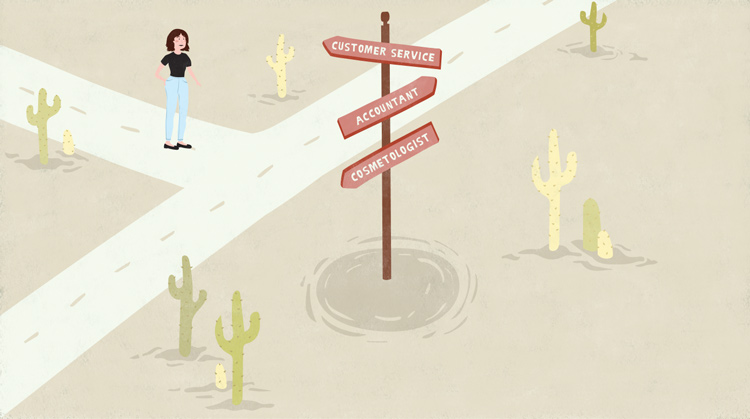Beginning a New Career -
How to Decide on a Career Field

Beginning a New Career
How to Decide on a Career Field



Whether you're entering the workforce for the first time or are looking to change careers, choosing a career can be a fairly intimidating task. It's a pretty big decision that can affect your life in a variety of ways. Luckily, there are a number of steps you can take to improve your chances of finding a career that's a good match for you.
Watch the video below to learn some tips for choosing a career that's right for you.
In order to know what career(s) might be a good fit, you first need to know yourself and what's important to you. Identifying your needs and preferences can really help you narrow down what it is you're looking for in a job. Here's a list of some important things to consider:
If you're changing careers, it's also important to consider what you like and dislike about your current career, as well as any transferable skills you may have that could be applied.
Using your evaluation results, you may be able to identify some potential careers to pursue. Some of the initial narrowing down may be easy. For example, if you find that you have a more extroverted personality, you may want to look for careers that involve interacting with people on a regular basis. Or if you're particularly passionate about animals, you may want to look for a career that involves them.
If you're having difficulty thinking of a good match, no need to worry! There are a variety of career assessments you can take that can guide you on the right path. They ask you a number of questions about yourself and use your answers to suggest different career options. Here's a list of free assessments from Monster that can help get you started.
Once you've narrowed down your options, you can start researching the fields you're drawn toward. This includes reading everything from job descriptions to news articles to blog posts about them. The more research you do and the wider variety of sources you pull from, the better idea you'll have of whether or not a certain career is for you.
Another more personal way to conduct research is to reach out to companies or individuals for an informational interview. This is similar to a job interview but with the intent of learning more about a company or career rather than trying to get hired. It's a good opportunity to ask questions about their career field, the day-to-day work, and opportunities for advancement. These can give you a more personal view into a career than online research is able to offer. To learn more about them and how to set one up, check out this helpful article from The Muse.
After some research, we hope you'll have a better grasp of some careers that interest you! From here, you can make the move to begin crafting a resume and applying to jobs.
/en/beginning-a-new-career/transferring-your-skills-to-a-new-career/content/